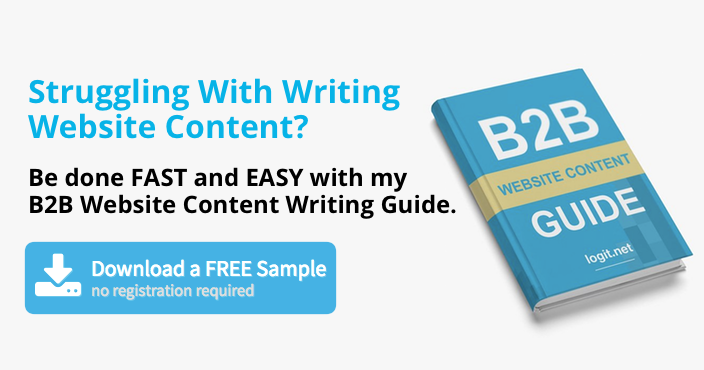
I hate writing. I love having written. - Dorothy Parker
I published a book. I’m an author.
On June 9th 2014 I pressed Publish on Leanpub and the book Recurring Revenue For Web Agencies with my name on it appeared online for the world to read, buy, appreciate and critique.
I wanted to publish a book since 2012. It didn’t happen then for a number of reasons. This post explains what I changed and who or what helped.
My Writing Mentors
Sometimes the writing happens but the publishing does not. Writing is like football: it does not help if you’ve played the first half well if it’s Mexico who win through in the end. You gotta score. You gotta ship.
That’s what happened to me. In 2012, I announced on my Facebook page and on my blog that I would be publishing a book by the end of that year. I started writing, but stuff got in the way. Life got in the way. 2012 went by. I continued writing in 2013, got to over 62,000 unedited words in my book. Life got in the way again and I never published.
During all that time, I read a lot about writing. You could say that I should have been writing, not reading - and you’d be right and wrong at the same time. Reading about writing did help in my case, and it wasn’t the reading that got in my way.
Writing is a solitary activity. When you’re writing your first book, you’re on your own. There is no one to help you.
Unless you get help from mentors, which I did.
No, I didn’t hire a mentor to cheer me on to write. I pretended that some of my favorite authors, who I respect and follow online, were my personal mentors. I pretended that what they said online was meant for me personally. I changed my behavior based on the advice I’ve cherry-picked from their books, newsletters, blogs, podcasts and videos.
Some of the things they said made the difference between not publishing and publishing. They showed me the door and I went through it.
I’m a Writer
When do you become a writer?
When you have published your first book? When you have written a hundred blog posts? When you have landed a column in a respectable publication? When your friends start calling you a writer?
None of the above. Do you want me to show you a single book that persuaded me that I’m a writer?
Here it is. My mentor Jeff Goins taught me that you become a writer when you say so. When you say it out loud that you are a writer, you set a certain change in motion. Your inner self will strive to maintain consistency with your proclaimed identity. What do writers do? They write. Am I a writer? Then I should write. So I wrote.
Jeff Goins, the online champion of making writing your calling, taught me WHY I needed to write. It’s because I cannot not write. I’d write even if they forbade me to. I’d pay to be able to write. I’m most creative when I write. It’s who I am.
Writing Every Day
There are only two days in the year that nothing can be done. One is called Yesterday and the other is called Tomorrow. Today is the right day to Love, Believe, Do and mostly Live. - Dalai Lama
Want me to show you a single post that changed my life? Here it is, from my mentor Leo Babauta on the topic of change. Let me quote the guy:
Nothing will change unless you make a daily change. - Leo Babauta
This is the most powerful and at the same time the most overlooked piece of advice on the planet. Every day, the window of opportunity to work on creating the Future Self we want to become is limited to Today. Something in our human biology makes it irresistible to dream big in the far future, but prevents us from accepting the simple direct path to there.
I said to myself that I wanted to earn my living from writing. I’ve taken a good look at the straightest path that would take me there. The path is to write every day and to publish when I’m done writing. The more I write every day, the faster I will get there.
Leo Babauta taught me WHAT one change is essential to go from not published to published.
Put Your Fingers on the Keys
I now knew WHY I wanted to write. I found out WHAT I need to change in my life to become an author. But HOW do I actually do it?
I’ll show you the single most sobering kick in the ass a writer can get. Here’s when my mentor Chris Brogan stepped in to teach me the mechanics. Here’s what he says in this audio interview, emphasis mine:
So I do 2,000 to 4,000 words a day. The way I do that, and I know we’ll go into that in a great deal of depth, is that I type. So I just put my fingers on the keys and I know that is immediately a turn-off to people, but yes, you must type to actually get the words typed. - Chris Brogan
He puts his fingers on the keys. I remember listening to this interview and pausing the audio stream to reflect on what he just said. I thought, could it be that easy? Is that how you become Chris Brogan if you do it consistently for ten years?
I too want to join the ranks of those writers who write about a piece of poopy and get fifty comments. That’s the only reason I tried :) OK, I’m kidding. I already told you WHY I tried. But when I tried, it worked for me too.
That’s how I start my daily writing sessions now. I sit down, I place my fingers on the keyboard and I start writing. I know that the first few hundred words that I vomit all over my digital paper will be just that: vomit. It stinks and it’s not pretty to look at. The magic starts happening every time after having typed for ten, fifteen, twenty minutes. It’s a comforting insight to know that your good writing is always within you and that all it takes to get there is time (and a lot of editing). This thought alone makes me want to endure through the first dreadful minute of starting.
Thinking is Outlining Is Writing
No mentor in particular taught me the lesson about outlining. I figured it out for myself while I was writing. That’s what happens when you practice your craft: you improve it.
I’ve never worked on a book before and there was never a need to outline anything. Most of my blog posts were spur-of-the-moment types of writing. I sat down with a burning idea in my head and a couple of hours later, a blog post was born. I just loved it how I could start and finish in one sitting. To outline was to waste time.
That’s not how I would write my book, mostly because I can’t write a whole book in just one sitting. Burning motivation only got me so far.
Lack of outlining the book was what kept me from publishing it. When you’re outlining, you’re listing and structuring your thoughts which will one day make up a book. Outlining is deciding what goes in your book and what you leave out. Without an outline, every time I sat down to write, I had to start the thinking process from scratch. Thinking is terrifying. I was forcing myself to go straight from my best thinking to my best writing. What I needed to do instead is to capture my thoughts in a structure first. That structure is called the outline.
I consciously decided to change my process. I first told myself that it’s ok to invest some time in the outline and that outlining is writing too. Every day I carved out the time to work on the outline of my book. I allowed myself to write during outlining if I felt inspired about a topic, but I kept my focus on the outline. I considered the outline finished when I had a list of topics that I wanted to write about and when one day was enough to start and finish writing the first draft of a topic. Writing a book became like writing blog posts again: every day I’d write one blog post, but this time there was order in my writing.
Real Artists Ship.
It was Steve Jobs who said this and who will forever own the word shipping in my head.
But I owe it to my partner Sasha who kept reminding me that shipping is now more important for me personally than to ship perfectly.
When I discovered the Leanpub self-publishing platform where I published my book, I instantly knew that I would be shipping with them. Their philosophy resonated with what my company does for a living (we write software which is never perfect). And because Leanpub encourages authors to publish books while they’re still in-progress, it was Sasha who kept pushing me to push Publish. If it wasn’t for him, I’d still be putting it off. I’d still be polishing my landing page. I’d still be researching what other authors do so that I wouldn’t make any rookie mistakes. He helped me accept that as a first time author, I indeed was a rookie and that it’s ok to make rookie mistakes. I just needed to make my mistakes as a published author. Published authors make better mistakes.
Creative Commons Image Credit: Launching “Mobil Valiant”
